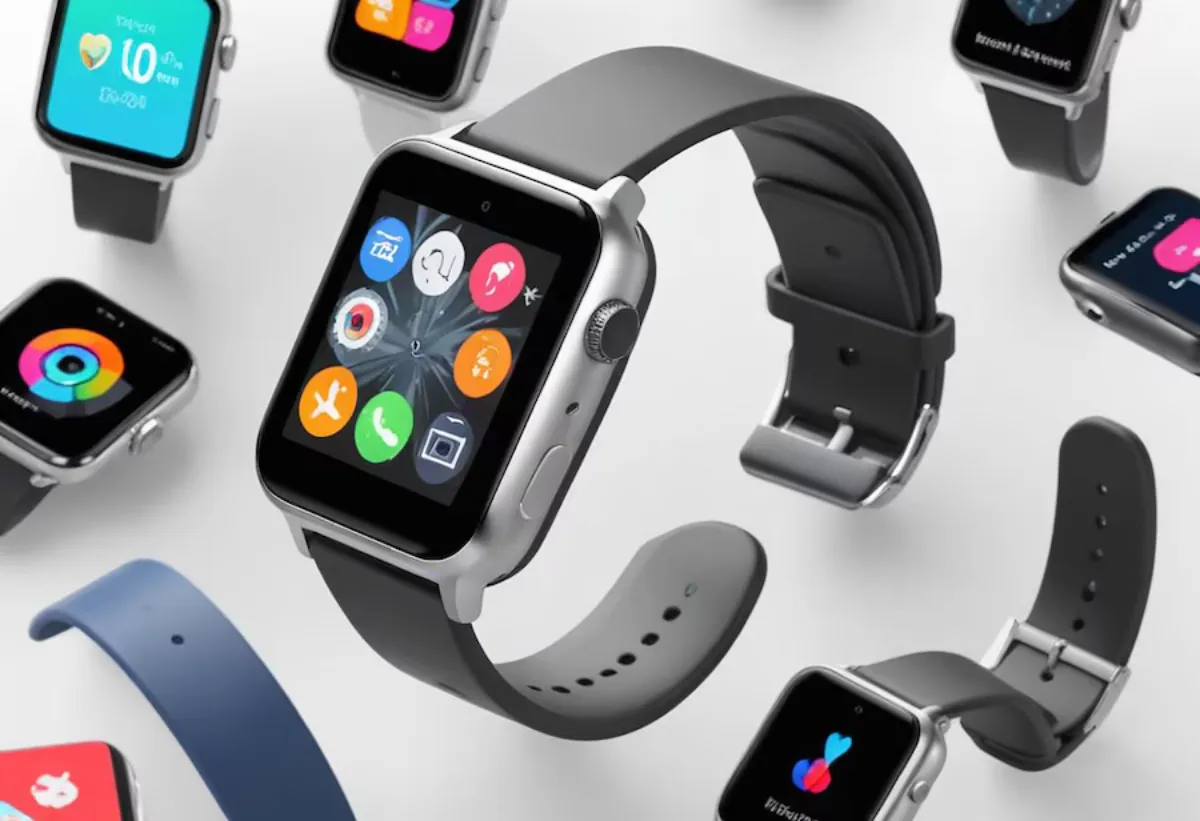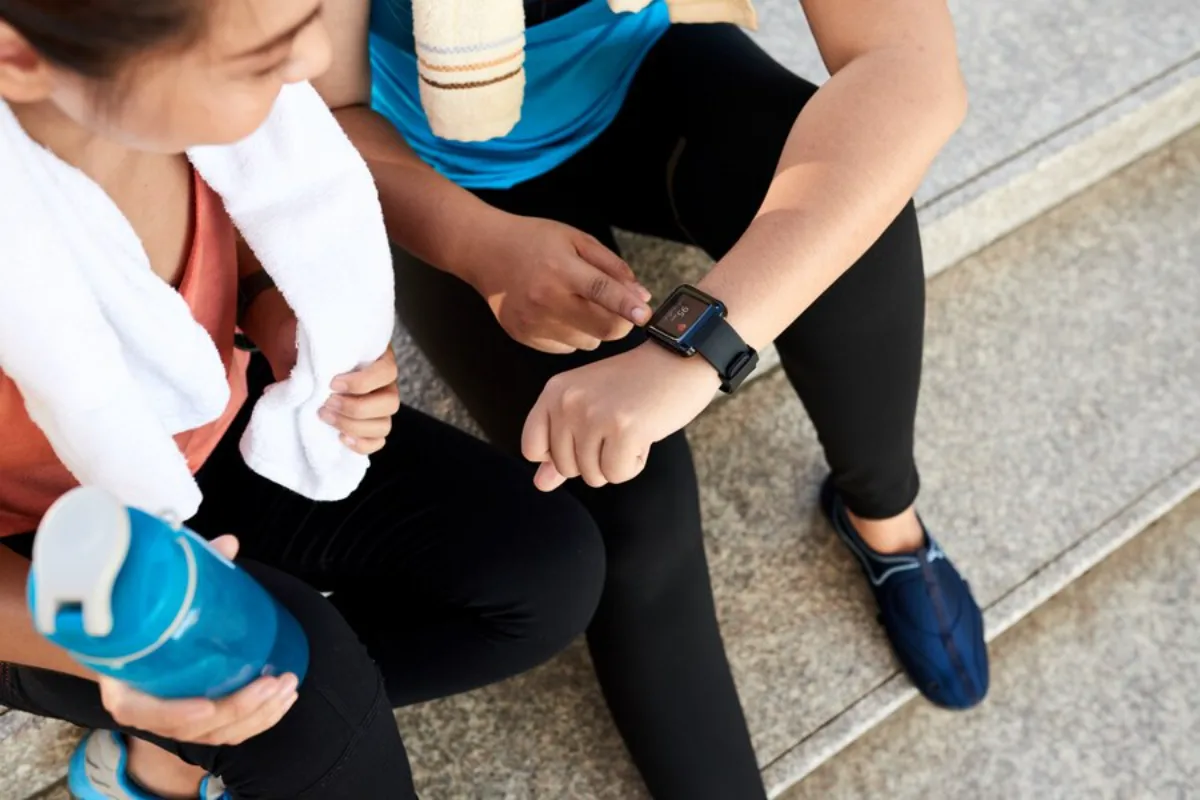
Smartwatches vs Fitness Trackers: Which One Should You Buy?
As wearable technology grows, consumers face a common question: smartwatches or fitness trackers—which is better? Both devices have features that boost health, fitness, and productivity. However, they serve different needs and lifestyles. Knowing the differences between these two fitness gadgets can help you decide better.
As technology moves forward, comparing smartwatches and fitness trackers gets trickier. Smartwatches are becoming mini smartphones on your wrist. Fitness trackers are adding more health features, making it hard to tell them apart. In this guide, we’ll look at what these devices can do. We’ll cover their pros and cons, who should use them, and the best models for 2025. This will help you choose the right device for you.

Understanding Smartwatches and Fitness Trackers
What is a Smartwatch?
A smartwatch is a versatile device. It extends your smartphone’s capabilities and offers more than just fitness tracking. It includes:
- Notifications for calls, messages, and apps
- Music streaming and control
- Voice assistants (e.g., Siri, Google Assistant, Alexa)
- Mobile payments (e.g., Apple Pay, Google Pay)
- Customisable watch faces and third-party apps
- Advanced fitness and health tracking
- Navigation and GPS for outdoor activities
- Ability to make and receive calls independently (for LTE-enabled models)
Smartwatches are designed for users who want a balance between productivity, fitness, and connectivity.
What is a Fitness Tracker?
A fitness tracker, also known as an activity band, is a streamlined device focused on health and wellness. It primarily monitors:
- Step count and daily activity
- Heart rate and sleep patterns
- Calories burned
- Workout tracking and sport-specific metrics
- Blood oxygen and stress levels (in newer models)
- Battery-efficient performance with a minimalist design
Fitness trackers are best suited for individuals who prioritise health tracking and long battery life over advanced smartwatch capabilities.
![]()
Wearable Comparison: Smartwatches vs Fitness Trackers
1. Design and Comfort
- Smartwatches: Typically larger with a touchscreen display, premium materials, and a more stylish look. Some models feature interchangeable straps and custom watch faces, making them more versatile as fashion accessories. However, their larger size can sometimes make them less comfortable for all-day wear.
- Fitness Trackers: Slim, lightweight, and designed for all-day wear. Many models have a discreet screen or none at all, prioritising comfort over aesthetics. They are often made of flexible, durable materials to withstand intense workouts.
Winner: Fitness trackers for lightweight comfort; smartwatches for style and premium design.
2. Health and Fitness Tracking
- Smartwatches: Offer in-depth tracking with ECG monitoring, blood oxygen levels, VO2 max, AI-driven workout coaching, and even hydration reminders. High-end models can detect irregular heart rhythms and provide detailed insights into overall health.
- Fitness Trackers: Focus on basic activity metrics such as steps, heart rate, sleep, and calorie burn. While they are getting more advanced, they still lack some of the high-tech health monitoring features found in smartwatches.
Winner: Smartwatches for advanced health metrics; fitness trackers for casual fitness tracking.
3. Battery Life
- Smartwatches: Usually last 1-3 days due to high-resolution screens and multiple features. Some premium models offer power-saving modes to extend battery life.
- Fitness Trackers: Can last up to 10-14 days on a single charge due to minimal display usage. Some models, like the Whoop Strap 5.0, have a continuous charging option via an external battery pack.
Winner: Fitness trackers for long-lasting battery life.
4. Smart Features and Connectivity
- Smartwatches: Support messaging, phone calls, contactless payments, and third-party apps. Some even include LTE connectivity, allowing you to use them independently from a smartphone.
- Fitness Trackers: Limited to fitness tracking, notifications, and basic call alerts. Most do not have app stores or advanced connectivity options.
Winner: Smartwatches for productivity and smartphone integration.
5. Pricing and Affordability
- Smartwatches: Higher price range (£200-£1,000) due to advanced features and premium build.
- Fitness Trackers: Budget-friendly (£50-£250), making them a great choice for cost-conscious buyers.
Winner: Fitness trackers for affordability; smartwatches for feature-packed value.

Best Smartwatches of 2025
1. Apple Watch Series 10
- Always-on Retina display with ultra-low power mode
- ECG, blood oxygen, and AI-powered fitness coaching
- Fast charging with 3-day battery life
- Customisable watch faces and improved Siri integration
- Best for Apple users looking for a premium experience
2. Samsung Galaxy Watch 7
- Circular AMOLED display with enhanced durability
- Advanced sleep tracking and body composition analysis
- Wear OS with Google Assistant and app ecosystem
- Samsung Pay for seamless transactions
- Ideal for Android users wanting a high-end smartwatch
3. Garmin Epix Pro 3
- Built-in GPS with advanced sports tracking
- Multi-week battery life (depending on usage)
- Best-in-class durability for extreme sports and outdoor adventures
- Excellent for athletes and adventure seekers
Best Fitness Trackers of 2025
1. Fitbit Charge 6
- Accurate heart rate and sleep tracking
- 7-day battery life with fast charging
- Built-in GPS for outdoor workouts
- Best for general health monitoring
2. Xiaomi Mi Band 8
- Affordable yet feature-rich
- SpO2 monitoring, step tracking, and smart notifications
- 14-day battery life
- Great for budget-conscious fitness enthusiasts
3. Whoop Strap 5.0
- Subscription-based with in-depth recovery and strain insights
- No screen, fully focused on fitness and health metrics
- Ideal for athletes and biohackers
Final Verdict: Which One Should You Buy?
Choosing between smartwatches vs fitness trackers depends on your personal needs and lifestyle:
- Buy a smartwatch if you want a device that seamlessly integrates with your phone, offers premium smart features, and provides advanced fitness insights.
- Buy a fitness tracker if you prefer a minimalist device with extended battery life, focused solely on health and fitness metrics.
Both fitness gadgets have their unique advantages, so the best choice ultimately depends on what features matter most to you. As wearable comparison technology advances, hybrid models that blend smartwatch and fitness tracker capabilities may soon become the perfect middle ground.
Smartwatches vs Fitness Trackers: Best Wearable Tech for 2025
The smartwatches vs fitness trackers debate is ongoing, but both categories continue to innovate and improve. Whether you’re looking for productivity, health tracking, or style, the latest fitness gadgets of 2025 cater to all needs. With new models launching each year, keeping up with wearable trends will ensure you find the perfect device for your lifestyle.


